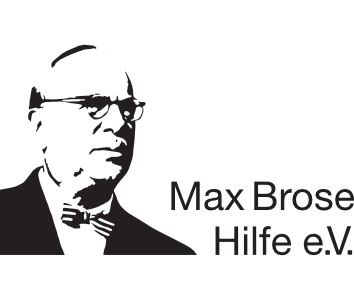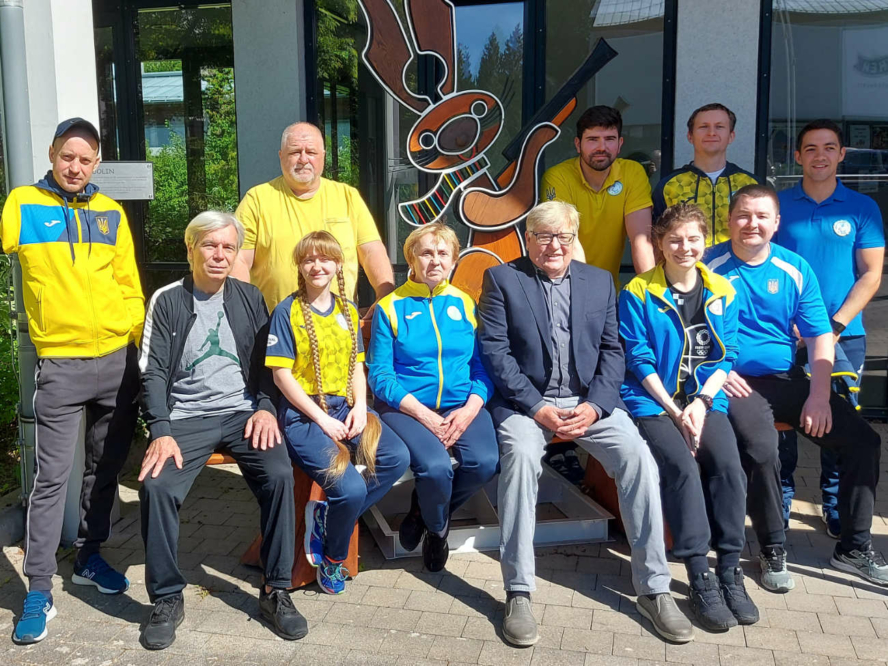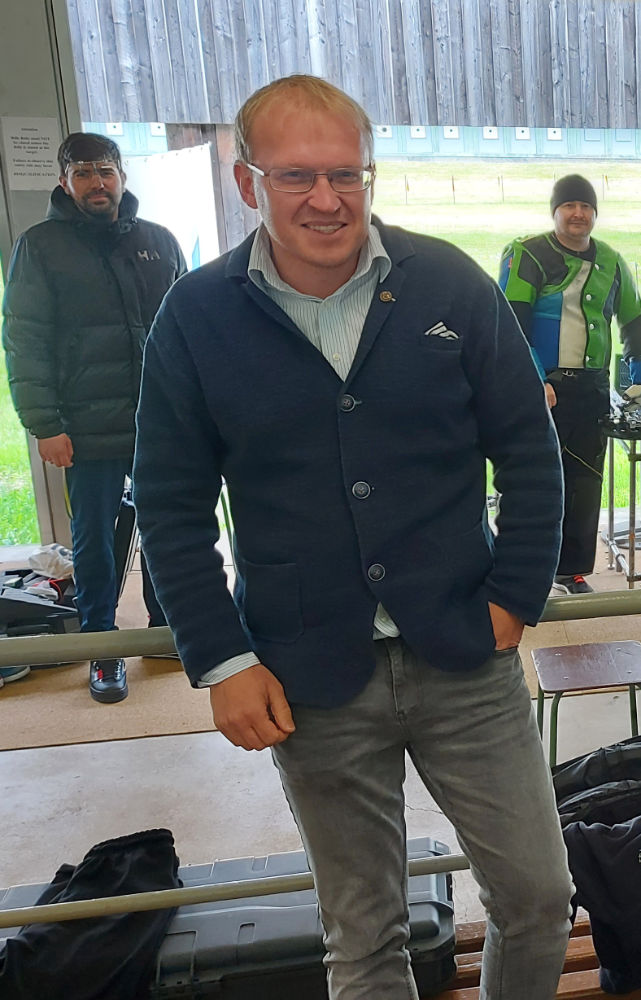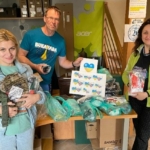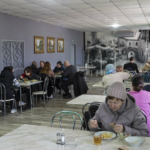Suhl: Evacuation and accommodation for Ukrainian athletesÂ
The SchĂĽtzenbund ThĂĽringen Suhl contacted Max Brose Hilfe directly and asked for support. The federation has maintained a partnership with athletes from Ukraine for many years. After the start of the war, it supported the evacuation of 15 athletes from the Paralympic national team from Odessa and organised accommodation and supplies for the athletes in Suhl at short notice. Max Brose Hilfe supported the organisation with 15,000 euros.Â
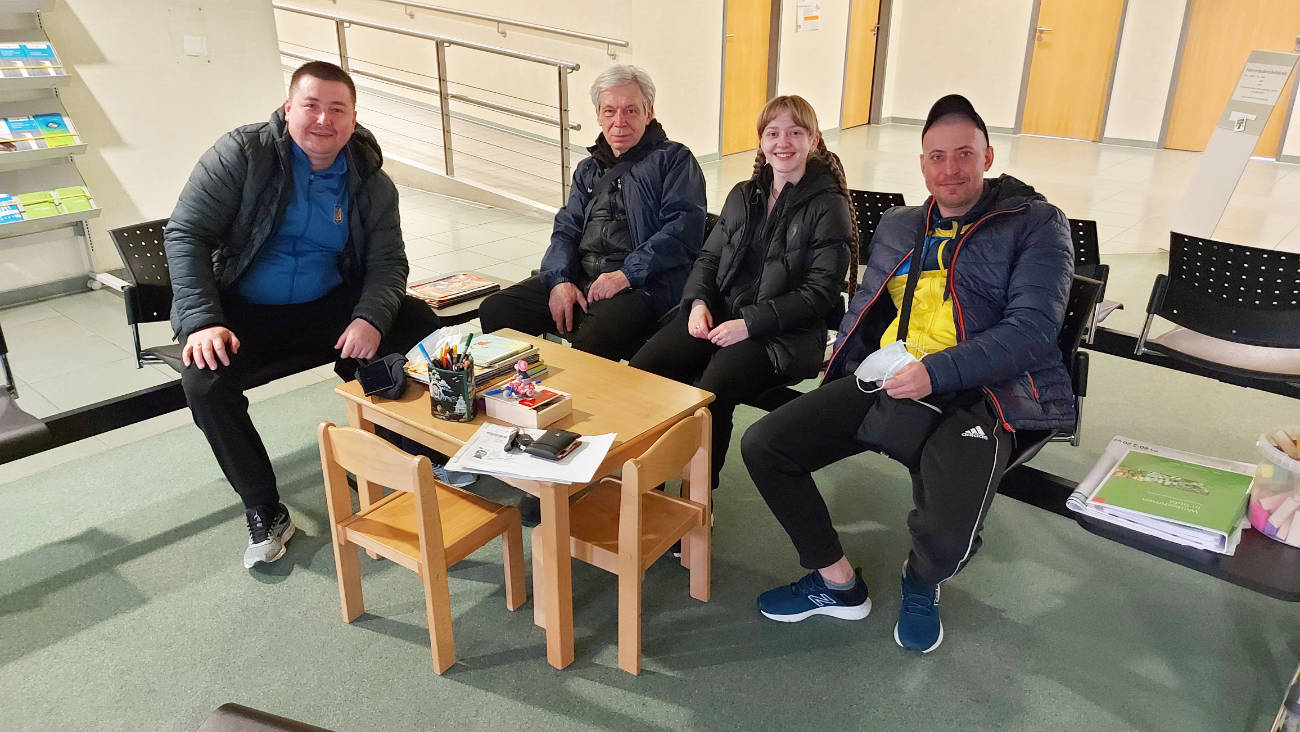
The athletes came directly from an international competition. There they had successfully competed for the Ukraine and returned to besieged Odessa. Under difficult circumstances, 11 athletes managed to leave the country by car and travel to Suhl in Thuringia. The local federation, mainly the managing director Michael Gohritz, provided accommodation and training facilities for the team in the shooting centre. Unfortunately, three other team members (wheelchair users) did not manage to leave the country.
Visit to the Paralympic National Team of Ukraine in Suhl.
Manfred Seemann and Edith Seemann
In conversation with Irina Shchetnik and Irina Vynogradova
The team is safe on the extensive grounds of the Thuringian Shooting Sports Association in Suhl. The living conditions are good and the training facilities for the group are very good. The Ukrainians have been here since the end of March and the peace and quiet here is in stark contrast to the exciting journey they have had. The team took part in the Paralympic Games in Tokyo. The Ukrainian Sports Federation organised everything. This structure is currently missing. So the journey of the athletes was an adventure. They travelled together in cars, got lost and had big problems at the borders with their sports equipment, the various weapons. This is also regulated by the federation. They met again in Warsaw, in summer clothes. When they arrived in Suhl, it was snow and sub-zero temperatures.
Michael Gohritz, Managing Director of the Thuringian Shooting Sports Association, first procured usable winter clothing and switched on the heating in the makeshift accommodation. In Ukraine, the president has forbidden heating, Irina Shchetnik tells us.Â
Michael Gohritz tells us about the difficulty of collecting donations and providing not only security but also a livable everyday life. Camp fever is not excluded here either. The Junior World Cup in Sport Shooting, which is currently taking place, enlivens the facility with 600 young people from 51 nations and provides a framework programme for a few days. Russia is not taking part, he says. His big worry: “I don’t know how it will go on, even we are reaching our limits.
In Suhl, the life of each individual is marked by daily contact with home, telephone calls, video messages. There is planning and worrying, real life takes place in Ukraine. At the sports school in Odessa, at university, with the family. It is a life of waiting, there is no tangible perspective. The uncertainty is what depresses both Irinas equally, despite the great difference in age, which is clearly noticeable in the conversation.
The “star” of the team is 21-year-old Irina Shchetnik. She studies European literature, speaks 5 languages and is an excellent shooter. She is the best of the team and was the medal star of her sport in Tokyo.
Irina spent 10 of her 21 years in hospitals. Only through numerous operations can she walk and use her arms today. A dream that accompanied her for a long time, she tells us, was the thought of being able to walk properly one day. You can’t see it on her face. Success in sport gives her self-confidence. Her participation in international competitions in Peru, Australia, Brazil and now in Tokyo do the rest. She feels like a citizen of the world with a permanent residence in Odessa. Asked about her limitations to participate in the Paralympic Games, she replies: “Paralympics is not the most important thing. It is the sport and what it enables you to do”.
Irina has big plans. She says she wants to continue her studies in Odessa, where people from 130 nations live. Normally, she says, it is a lively big city with a wonderful flair. The historic old town had been the meeting place, the heart of social life. Now a very dangerous place, and the coast and harbour are mined as well. Sport is a wonderful opportunity to develop, to strengthen in competition with each other, to meet and appreciate each other. She beams as she says it, and you believe her.
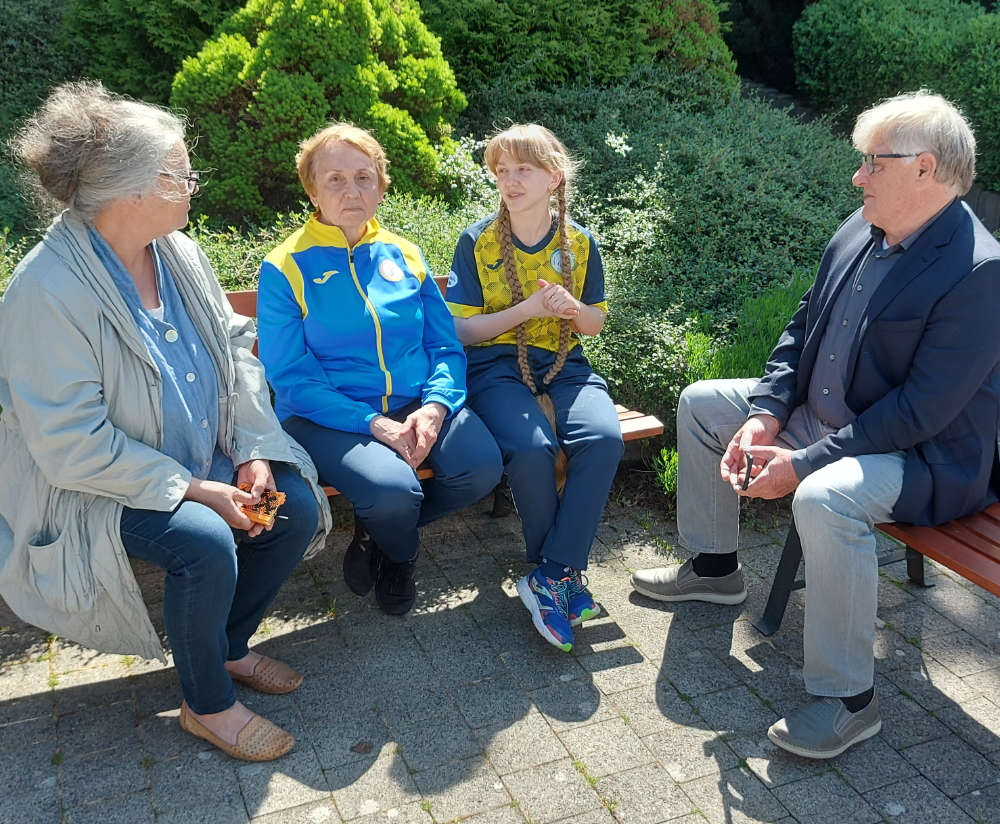
Irina Vynogradova, now 60 years old, has been involved in sport for a good 40 of those years, as she tells us. She is the head coach of the team, formerly active and successful herself, and together with her husband also something like the head of the family of the group. You can also see her cosmopolitanism, her interest in other cultures. She seeks cultural exchange and traditional folklore wherever she goes. The war and the isolation of family is a sad chapter. Especially since there are Ukrainian and Russian people in every family. They understand each other. Destinations in Russia were common and relations were close. This makes everything even more lossful. In a firm voice she says: “we are all Ukrainians no matter what language we speak”.
